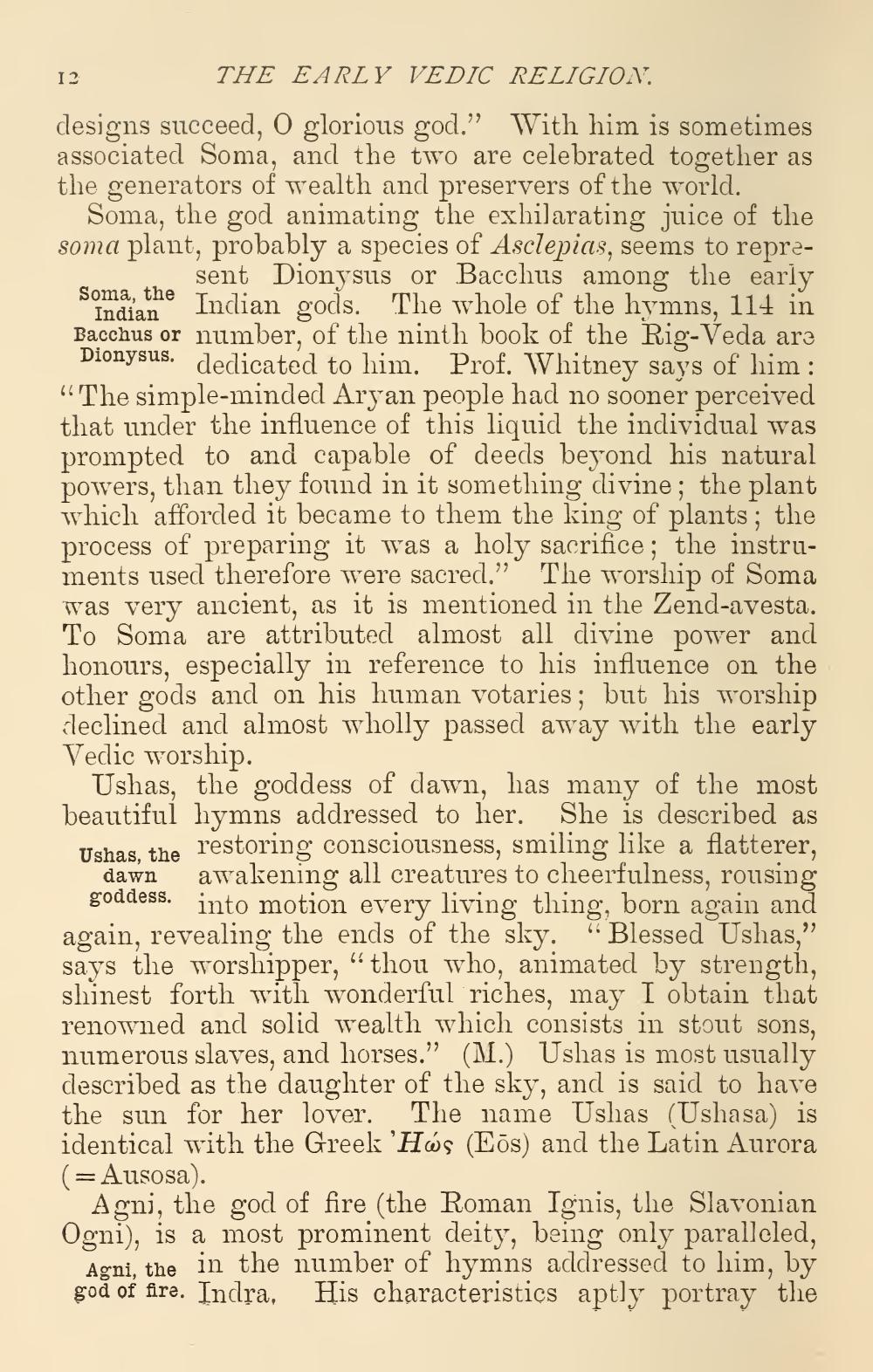________________
THE EARLY VEDIC RELIGION.
designs succeed, O glorious god." With him is sometimes associated Soma, and the two are celebrated together as the generators of wealth and preservers of the world.
Indian
Soma, the god animating the exhilarating juice of the soma plant, probably a species of Asclepias, seems to represent Dionysus or Bacchus among the early Soma, the Indian gods. The whole of the hymns, 114 in Bacchus or number, of the ninth book of the Rig-Veda are Dionysus. dedicated to him. Prof. Whitney says of him: "The simple-minded Aryan people had no sooner perceived that under the influence of this liquid the individual was prompted to and capable of deeds beyond his natural powers, than they found in it something divine; the plant which afforded it became to them the king of plants; the process of preparing it was a holy sacrifice; the instruments used therefore were sacred." The worship of Soma was very ancient, as it is mentioned in the Zend-avesta. To Soma are attributed almost all divine power and honours, especially in reference to his influence on the other gods and on his human votaries; but his worship declined and almost wholly passed away with the early Vedic worship.
12
Ushas, the goddess of dawn, has many of the most beautiful hymns addressed to her. She is described as Ushas, the restoring consciousness, smiling like a flatterer,
dawn awakening all creatures to cheerfulness, rousing goddess. into motion every living thing, born again and again, revealing the ends of the sky. Blessed Ushas," says the worshipper, "thou who, animated by strength, shinest forth with wonderful riches, may I obtain that renowned and solid wealth which consists in stout sons, numerous slaves, and horses." (M.) Ushas is most usually described as the daughter of the sky, and is said to have the sun for her lover. The name Ushas (Ushasa) is identical with the Greek 'Hós (Eōs) and the Latin Aurora (=Ausosa).
Agni, the god of fire (the Roman Ignis, the Slavonian Ogni), is a most prominent deity, being only paralleled, Agni, the in the number of hymns addressed to him, by god of fire. Indra, His characteristics aptly portray the




